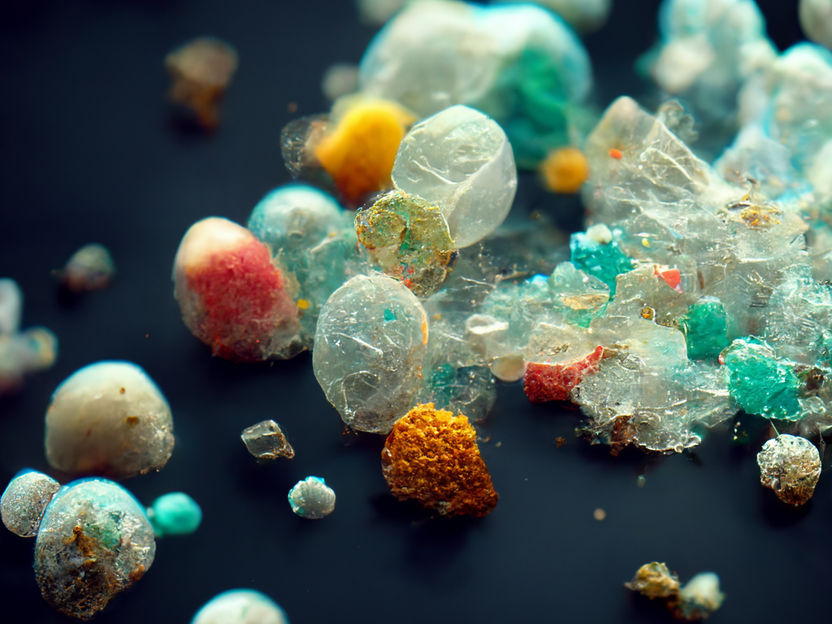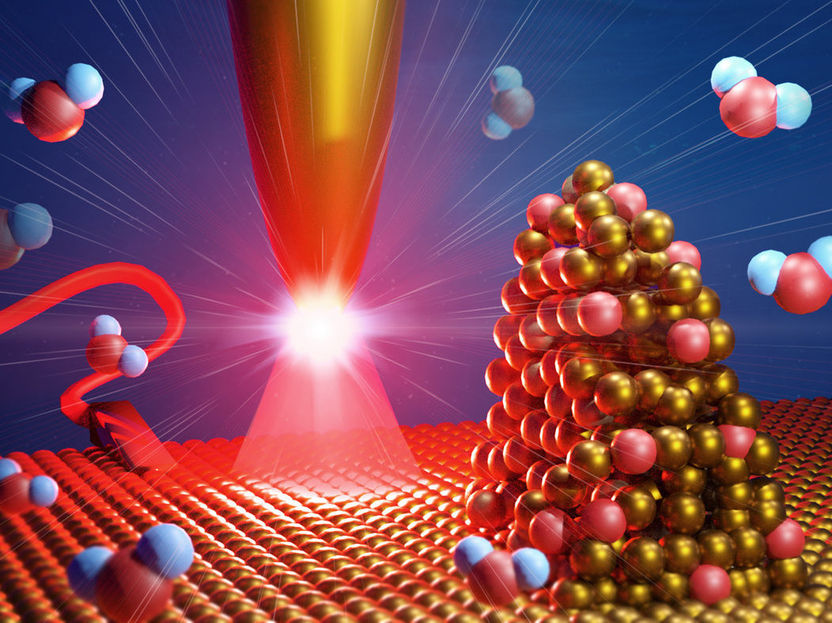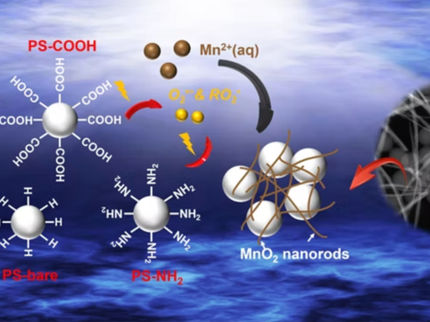Nanoplastics can disrupt human liver, lung cells’ processes in lab experiments
What happens when people unknowingly eat, drink or inhale nearly invisible pieces of plastic?
Although it’s unclear what impact this really has on humans, researchers have now taken a step toward answering that question. In ACS’ Environmental Science & Technology, a team reports laboratory results indicating that tiny plastic particles could enter liver and lung cells and disrupt their regular processes, potentially causing adverse health outcomes.

Symbolic image
Computer generated picture
Plastic can’t be avoided in daily life. Many products that we bring into our homes are made of plastic or wrapped in plastic packaging — all of which could release micro- and nanometer-sized pieces that could be accidentally consumed or inhaled. Although the health risks to humans from taking in nanoplastics isn’t entirely clear, researchers recently have shown that particles less than 100 nm-wide can enter animals’ blood and organs, causing inflammation, toxicity and neurological changes. So, Zongwei Cai, Chunmiao Zheng and colleagues wanted to examine the molecular-level and metabolic impacts when human lung and liver cells are exposed to similarly sized nanoplastics.
The researchers cultured human liver and lung cells separately in laboratory plates and treated them with different amounts of 80 nm-wide plastic particles. After two days, electron microscopy images showed that nanoplastics had entered both types of cells without killing them.
To learn more about what happened to the cells, the researchers looked at the compounds released by mitochondria — crucial energy-producing organelles that are thought to be sensitive to nanoplastics — during metabolism. As liver and lung cells were exposed to more nanoplastics, they produced more reactive oxygen species and different amounts of nucleotides, nucleosides, amino acids, peptides and carboxylic acids, indicating that multiple metabolic processes were disturbed. In some cases, mitochondrial pathways appeared to be dysfunctional. These observations demonstrate that while nanoplastics exposure doesn’t kill human lung and liver cells, it could disrupt critical processes, potentially causing negative impacts to organs, the researchers say.
Original publication
Other news from the department science

Get the chemical industry in your inbox
By submitting this form you agree that LUMITOS AG will send you the newsletter(s) selected above by email. Your data will not be passed on to third parties. Your data will be stored and processed in accordance with our data protection regulations. LUMITOS may contact you by email for the purpose of advertising or market and opinion surveys. You can revoke your consent at any time without giving reasons to LUMITOS AG, Ernst-Augustin-Str. 2, 12489 Berlin, Germany or by e-mail at revoke@lumitos.com with effect for the future. In addition, each email contains a link to unsubscribe from the corresponding newsletter.
Most read news
More news from our other portals
Last viewed contents
Electrolyte_disturbance
Siegenite
Virola_sebifera
KSB Group: Growth in order intake with sales revenue stable
Charles_Washington_Merrill
Category:Pnictogens




























































